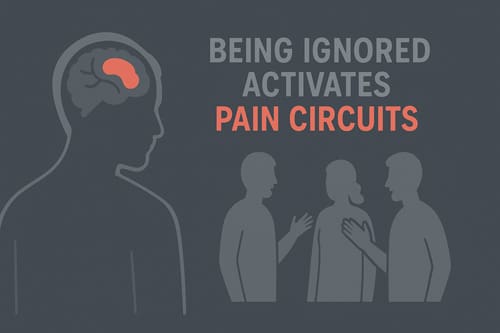Fascinating Psychological Insights: Evidence-Based Observations About How the Human Mind and Behavior Really Work

Introduction
Human behavior is an intricate reflection of emotion, memory, chemistry, and social connection. Modern psychological research continues to reveal small but striking insights into how our minds operate beneath conscious awareness. Each thought, reaction, and gesture is influenced by a complex interplay between biology, experience, and environment—often in ways we barely notice.
Psychology, neuroscience, and behavioral science together offer a powerful lens for understanding these hidden mechanisms. They bridge the gap between the brain’s chemical signals and the stories we tell about ourselves, showing how subtle shifts in hormones, attention, or perception can shape our relationships, choices, and moods.
The following observations summarize a variety of peer-reviewed findings from these fields—presented in an accessible, conversational form while maintaining scientific accuracy. They invite reflection on how the smallest moments of daily life—how we love, listen, rest, and connect—reveal the profound complexity of what it means to be human.
1. Emotional Connection and Pain
-
Being ignored or excluded activates the same regions of the brain involved in physical pain. Emotional wounds, in a literal neurological sense, hurt.
-
A long hug—lasting at least 20 seconds—triggers oxytocin release, fostering trust and emotional safety.
-
Chocolate, like romantic attraction, elevates dopamine and serotonin, producing a brief “in love” sensation or a fleeting sense of joy and connection.
2. Music, Memory, and Emotion
-
Favorite songs often anchor to personal memories. The pleasure you feel when hearing them is partly emotional nostalgia.
-
People are naturally drawn to artists whose personalities mirror their own psychological traits.
-
The type of music you prefer subtly shapes how you perceive and interpret the world around you.
3. The Mind and Its Tricks
-
Nearly everyone carries at least one false memory—small details your brain confidently “remembers” that never happened.
-
Memories are not static; each recall subtly rewrites them, distorting the past.
-
Thinking in another language increases rationality. It reduces emotional bias by activating more deliberate thought networks.
4. Modern Life and Digital Behavior
-
About two-thirds of people experience “phantom vibration syndrome”—feeling their phone buzz when it hasn’t.
-
Losing a smartphone can trigger panic symptoms similar to a near-death experience. The brain treats sudden digital disconnection as social threat.
-
Constant availability and alert fatigue from notifications may contribute to chronic anxiety and decreased attention span.
5. Happiness, Habits, and Mental Health
-
People who stay busy tend to feel happier; activity distracts the mind from rumination and negative thoughts.
-
Waking up just one hour earlier can lower depression risk by more than 20%. Morning light regulates serotonin and circadian balance.
-
Helping others correlates strongly with life satisfaction and lower rates of late-life depression.
-
Dancing or engaging in joyful movement before starting the day can elevate optimism and resilience.
6. Relationships and Social Bonds
-
When a group laughs, individuals instinctively look at the person they feel closest to.
-
Friendships formed between ages 16 and 28 tend to be the most enduring.
-
Men who kiss their partners in the morning live, on average, several years longer—likely due to lower stress and stronger emotional connection.
7. Environment and Well-Being
-
Living near clear, visible water sources is linked to lower psychological distress. Nature exposure reduces cortisol and boosts mood regulation.
-
Religious practices such as prayer or communal gatherings are consistently associated with lower anxiety and higher emotional stability.
-
Loneliness often leads to behavioral compensation—like taking long, warm baths—to simulate social warmth.
8. Sleep, Learning, and Body Position
-
Sleeping right after studying strengthens memory consolidation.
-
The left-side sleeping position aids digestion, brain health, and reduces snoring due to improved lymphatic drainage.
-
The first few seconds after waking, most people experience mild amnesia—an adaptive buffer before full consciousness returns.
9. Cognitive Style and Humor
-
People capable of using sarcasm intelligently tend to show higher cognitive flexibility and emotional regulation.
-
Those who instinctively use humor to deflect stress usually score higher in measures of psychological resilience.

Conclusion 
Everyday actions—how we listen to music, respond to messages, hug loved ones, or even sleep—reveal extraordinary insights into human nature. Psychology isn’t just about studying disorders; it helps us understand the ordinary moments that shape our identity. Each small discovery adds to a broader understanding of the modern mind—emotional, adaptable, sometimes fragile, yet endlessly fascinating.
Ultimately, psychology reminds us that the essence of being human is found not only in our struggles but in the simple patterns of daily life. By paying closer attention to these subtle behaviors, we begin to understand ourselves and others with greater empathy, awareness, and appreciation for the shared complexity of the human experience.

References:
- Lieberman, M. D., & Eisenberger, N. I. (2009). Pains and pleasures of social life. *Science*, 323(5916), 890-891.
- Zatorre, R. J. (2005). Music, the food of neuroscience? *Nature*, 434(7031), 312-315.
- Kahneman, D. (2011). *Thinking, Fast and Slow*. Farrar, Straus and Giroux.
- Turkle, S. (2017). *Alone Together: Why We Expect More from Technology and Less from Each Other*. Basic Books.
- Lyubomirsky, S. (2008). *The How of Happiness: A Scientific Approach to Getting the Life You Want*. Penguin Press.
- Van Bavel, J. J., & Packer, D. J. (2021). The psychology of social identity and group behavior. *Annual Review of Psychology*, 72, 503-528.

